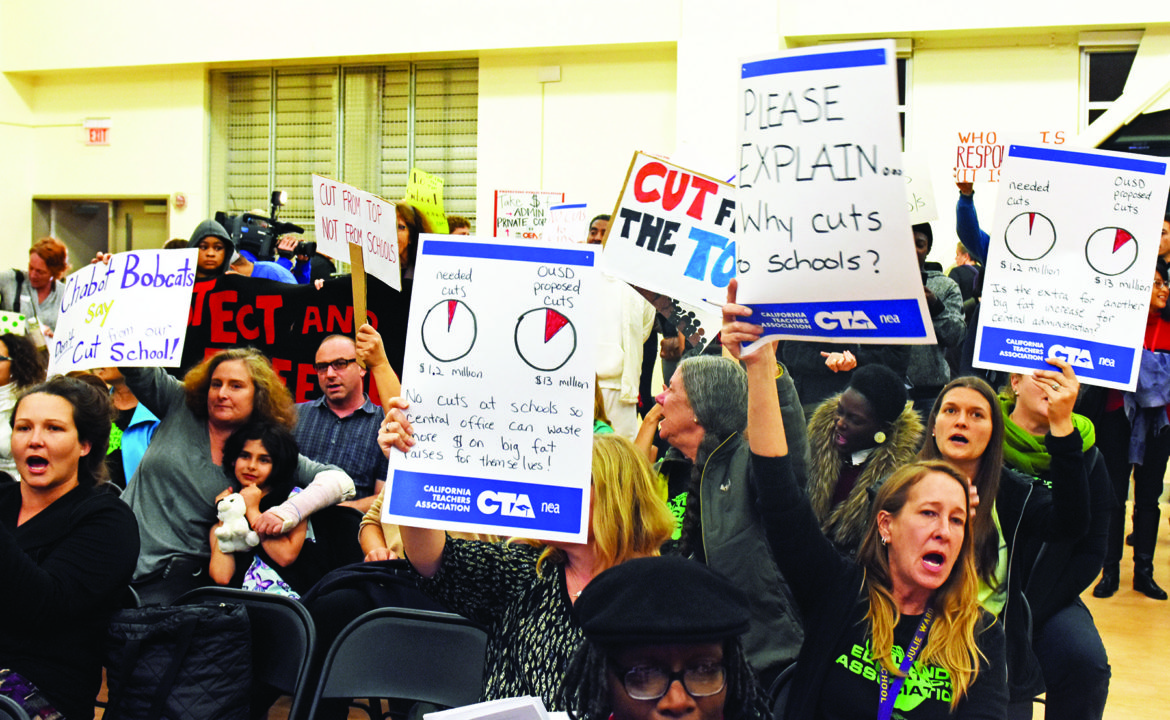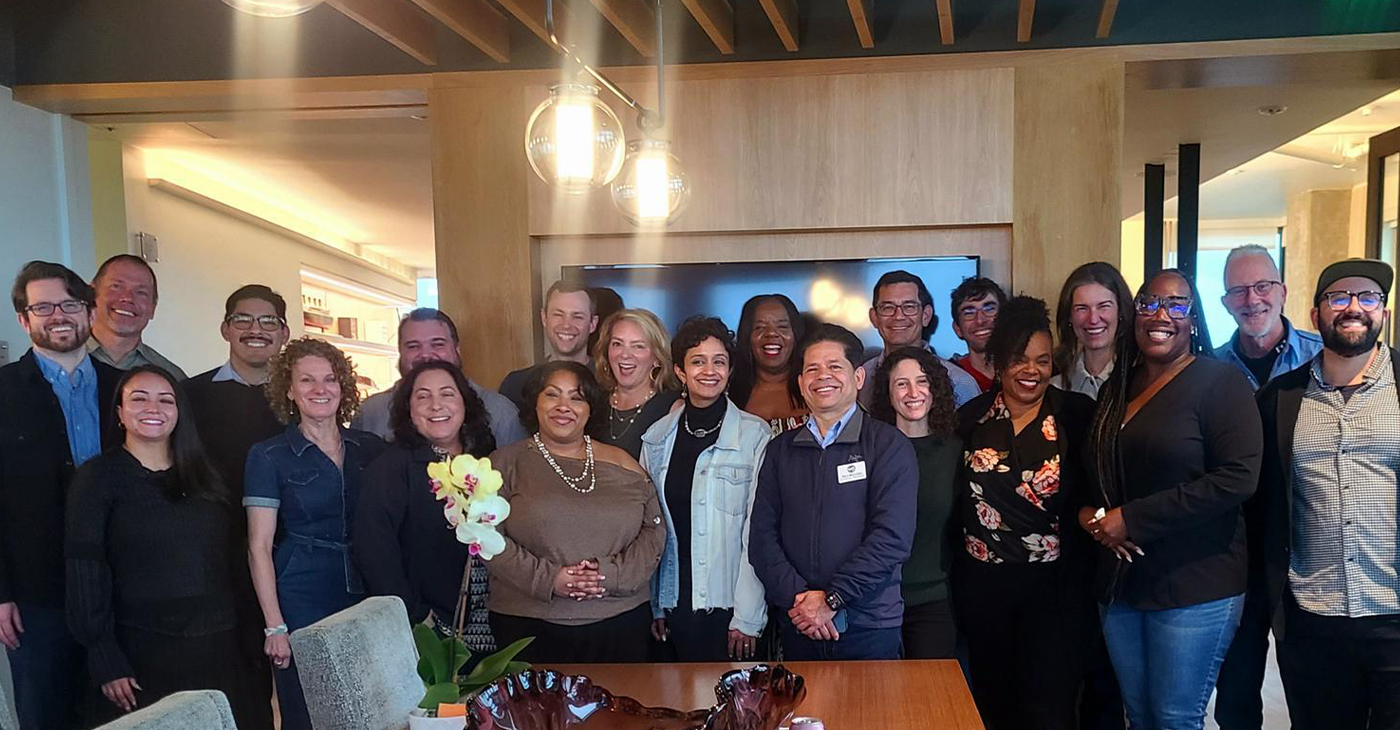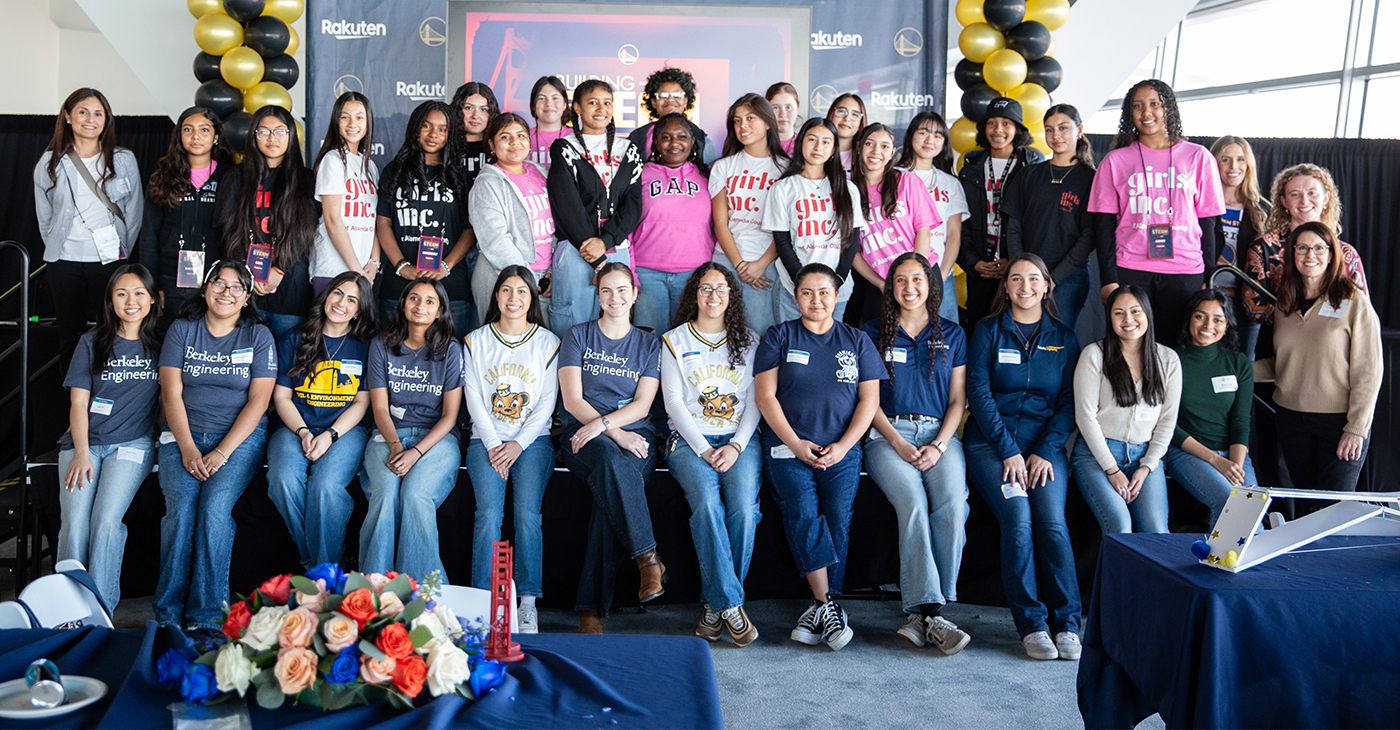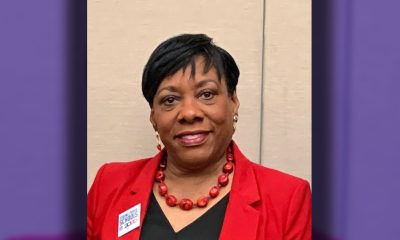Education
OUSD May Receive Millions in State Aid – But the Money Comes with Strings

Parents and teachers protest last school year against cuts to programs and layoffs at school sites. Photo by Ken Epstein.
The State of California is set to approve a law that would relieve the Oakland Unified School District’s ongoing financial distress, but the grant comes with strings—which in the worst case could mean the state and its affiliated agencies could require OUSD to close dozens of schools, sell or lease surplus property and lay off hundreds of teachers, nurses, cafeteria workers and custodians.
The trailer bill (AB-1840 Education Finance) has already passed the State Legislature and is now awaiting Gov. Jerry Brown’s signature. Brown, who was reportedly involved in crafting the legislation, is said to be likely to sign the bill.
Under terms of the bill, Oakland and Inglewood (which is in the same boat as Oakland) would receive aid from the state through 2022, (a total for Oakland of about $34.7 million), which would pay 75 percent of the district’s projected operating deficit in 2019-20, up to 50 percent of the projected operating deficit in 2020-21 and as much as 25 percent of the operating deficit the following year.
The bill also includes mandated “benchmarks,” which the district must meet in order to receive the state grant.
“OUSD will be required to partner more closely with county and state officials, adopt multi-year financial projections that would eliminate its deficit, and produce a plan to right size the district,” by closing or consolidating schools, according to the district’s explanation of the bill.
“We appreciate the partnership with (the agencies) and our legislative delegates for working with us to address our pressing financial situation. We know the benchmarks outlining accountability and sound fiscal practices will help guide us as we continue building a solid and sustainable foundation for the district using the policies set forth by our own Board of Education,” said Superintendent Kyla Johnson-Trammell.
“We must act with urgency,” she said, speaking at a recent district committee meeting. “We’ve simply run out of time.”
Many Oakland educators and parents are encouraged by the prospect of financial relief to the public schools. But many expressed concern about the agenda of the agencies that would have the final say-so about whether the annual cuts the district is proposing meet official mandates.
These agencies, the Alameda County Office of Education and the Fiscal Crisis and Management Assistance Team (FCMAT), a state-funded nonprofit that advises districts on financial matters, have a long record in Oakland of advocating austerity, school closings and layoffs.
Both agencies played a large role in pushing OUSD into receivership (2003-2009) and forcing the district to take a $100 million state loan, which it did not ask for and had no control over spending.
Despite their influence over district policy for the six years of state receivership, neither agency has taken any responsibility for saddling OUSD with debt, their failure to balance the district’s budget or to institutionalize adequate financial controls.
“The state support provides relief in the near term, giving us the opportunity to implement longer term strategies to create a sustainable, quality school district for years to come,” said district spokeswoman Valerie Goode, quoted in EdSource. “The truth is, even with this support, we will need to continue making hard decisions to reduce our budget, right-size the district and continue improving our financial practices.”
According to district sources, OUSD must cut $30 million by June of 2019, which includes $20 million to eliminate a structural deficit and $10 million in reserves. It is still unclear how the district will pay raises for teachers, who have been working for a year without a contract.
Because the state grant would be one-time money, it would not eliminate the district’s structural deficit. But the grant would allow OUSD to slow down the cuts, spreading them over a several-year period, said School Board President Aimee Eng.
Oakland has its own financial problems, said Eng, but like other districts throughout the state, such as Los Angeles and Sacramento, “We’re in a place with flat revenue and dramatically increasing expenditures.”
The Alameda County Office of Education recently rejected OUSD’s three-year budget plan, saying it did not adequately address needed budget reductions. The school board has created a special committee to recommend the $30 million in budget cuts to avoid future deficits.
In a letter to community supporters of public education, Oakland Education Association President Keith Brown was positive about the state grant and told the community that the bill had broad support in the legislature and was unstoppable. “We will have opportunities later to weigh in on the requirements,” if the agencies push the district to consolidate schools or sell surplus property, he said.
One parent who has been following the progress of the state bill closely is Nilofer Ahsan, a member of Equity Allies for OUSD, an all-volunteer organization of Oakland parents and community members.
“There is a multi-million-dollar question facing all of Oakland,” she said. “It is true the district is in fiscal crisis and needs to fix those issues. But the question is: How are we going to be sure the changes are going to be good for students and families in the long run?”
“What will FCMAT and the County Office consider to be an adequate plan?” Ahsan asked. “The fear is that these (requirements) will be tied to deep austerity measures: School closures and losing school staff.”
“There’s no denying tough decisions will need to be made. As a community, we’re going to feel every single cut.”
Realistically, not all of the cuts can come from central office staff, she said “The cuts will be felt at the schools.”
Parent activist Anne Swinburn has also been closely following the state bill.
OUSD is in financial distress “for a bunch of reasons,” including many that are at least partly the responsibility of the state and the Legislature: state receivership and the expansion of charter schools to almost one-third of schools and students in Oakland.
“The district clearly needs financial relief. It’s important that we remember the situation we are in is because of actions that happened at the state level, not just locally.”
“We really need for the state loan (a $40 million debt still outstanding) to be cancelled, and we need the Legislature to change the charter laws, so Oakland can decide locally what schools are opened and where they are located.”
“This bill gives the county superintendent and FCMAT the power to require OUSD to close schools, which we already know they want OUSD to do,” she said.
School board members can follow two different paths—they can try to find cuts that do not involve closing neighborhood schools, or they can decide to let the state and FCMAT have their way, Swinburn said.
People should understand that closing schools does not save money, she said. “The big cost of operating a school is teacher salaries,” which are not reduced by closing a school and moving students to other locations.
However, closing schools could lead to a loss of students who leave the district for charters or private schools and cause “incredible hardship in Oakland,” she said, noting that the national research does not indicate that districts save money when they close schools.
“Kids in Oakland schools are already facing high levels of trauma and school instability in their lives,” she said. “This is not the kind of instability we owe to Oakland kids.”
Bay Area
Five Years After COVID-19 Began, a Struggling Child Care Workforce Faces New Threats
Five years ago, as COVID-19 lockdowns and school closures began, most early educators continued to work in person, risking their own health and that of their families. “Early educators were called essential, but they weren’t provided with the personal protective equipment they needed to stay safe,” said CSCCE Executive Director Lea Austin. “There were no special shopping hours or ways for them to access safety materials in those early and scary months of the pandemic, leaving them to compete with other shoppers. One state even advised them to wear trash bags if they couldn’t find PPE.”

UC Berkeley News
In the first eight months of the COVID-19 pandemic alone, 166,000 childcare jobs were lost across the nation. Significant recovery didn’t begin until the advent of American Rescue Plan Act (ARPA) Child Care Stabilization funds in April 2021.
Today, child care employment is back to slightly above pre-pandemic levels, but job growth has remained sluggish at 1.4% since ARPA funding allocations ended in October 2023, according to analysis by the Center for the Study of Child Care Employment (CSCCE) at UC Berkeley. In the last six months, childcare employment has hovered around 1.1 million.
Yet more than two million American parents report job changes due to problems accessing child care. Why does the childcare sector continue to face a workforce crisis that has predated the pandemic? Inadequate compensation drives high turnover rates and workforce shortages that predate the pandemic. Early childhood educators are skilled professionals; many have more than 15 years of experience and a college degree, but their compensation does not reflect their expertise. The national median hourly wage is $13.07, and only a small proportion of early educators receive benefits.
And now a new round of challenges is about to hit childcare. The low wages paid in early care and education result in 43% of early educator families depending on at least one public support program, such as Medicaid or food stamps, both of which are threatened by potential federal funding cuts. Job numbers will likely fall as many early childhood educators need to find jobs with healthcare benefits or better pay.
In addition, one in five child care workers are immigrants, and executive orders driving deportation and ICE raids will further devastate the entire early care and education system. These stresses are part of the historical lack of respect the workforce faces, despite all they contribute to children, families, and the economy.
Five years ago, as COVID-19 lockdowns and school closures began, most early educators continued to work in person, risking their own health and that of their families. “Early educators were called essential, but they weren’t provided with the personal protective equipment they needed to stay safe,” said CSCCE Executive Director Lea Austin. “There were no special shopping hours or ways for them to access safety materials in those early and scary months of the pandemic, leaving them to compete with other shoppers. One state even advised them to wear trash bags if they couldn’t find PPE.”
The economic impact was equally dire. Even as many providers tried to remain open to ensure their financial security, the combination of higher costs to meet safety protocols and lower revenue from fewer children enrolled led to job losses, increased debt, and program closures.
Eventually, the federal government responded with historic short-term investments through ARPA, which stabilized childcare programs. These funds provided money to increase pay or provide financial relief to early educators to improve their income and well-being. The childcare sector began to slowly recover. Larger job gains were made in 2022 and 2023, and as of November 2023, national job numbers had slightly surpassed pre-pandemic levels, though state and metro areas continued to fluctuate.
Many states have continued to support the workforce after ARPA funding expired in late 2024. In Maine, a salary supplement initiative has provided monthly stipends of $240-$540 to educators working in licensed home- or center-based care, based on education and experience, making it one of the nation’s leaders in its support of early educators. Early educators say the program has enabled them to raise wages, which has improved staff retention. Yet now, Governor Janet Mills is considering cutting the stipend program in half.
“History shows that once an emergency is perceived to have passed, public funding that supports the early care and education workforce is pulled,” says Austin. “You can’t build a stable childcare workforce and system without consistent public investment and respect for all that early educators contribute.”
The Center for the Study of Childcare Employment is the source of this story.
Activism
District Delegates to State Democratic Party Central Committee Meeting Celebrate Election Victory
Delegates and elected officials were excited for the future of the Democratic Party and making its focus on 1) creating more affordable housing, 2) supporting education, 3) helping working families, and 4) protecting the environment and addressing climate change, with a focus on practical and realistic policy efforts that could have a meaningful impact.

By Ben Gould
Special to The Post
Winners of the February 2025 Assembly District Election Meetings (ADEM) for Assembly Districts 14 and 18 met on Sunday, March 16 to discuss priorities for the California Democratic Party convention in Anaheim coming up in May.
The winners for Assembly District 18 are Genice Jacobs, Bobbi Lopez, Shawn Danino, Ben Gould, Zac Bowling, Nate Hanson, Cathy Adams, Sam Gould, Lauren Wilson, Ashlee Jemmott, and former Oakland School Board Director Sam Davis.
The winners for Assembly District 14 are: Sarah Bell, Neil Tsutsui, Hercules Councilmember Dilli Bhattarai, former Berkeley School Board Director Laura Babitt, former Piedmont Mayor Teddy Gray King, and former Albany Mayor Nick Pilch.
They were joined by Oakland Councilmember Janani Ramachandran, Emeryville Councilmember Courtney Welch, and BART Director Victor Flores to help celebrate their victory.
Delegates and elected officials were excited for the future of the Democratic Party and making its focus on 1) creating more affordable housing, 2) supporting education, 3) helping working families, and 4) protecting the environment and addressing climate change, with a focus on practical and realistic policy efforts that could have a meaningful impact.
Activism
Golden State Warriors Program Is Inspiring Next Generation of Female Engineers
Breaking down barriers and biases that deter young girls from pursuing STEAM subjects is essential for creating a level playing field and ensuring equal opportunities for all. By challenging stereotypes and promoting a culture of inclusivity and diversity in STEAM fields, experts believe young girls can be empowered to pursue their interests and aspirations without limitations confidently. Encouraging mentorship, providing access to resources, and celebrating girls’ achievements in STEAM are all crucial steps in creating a supportive environment that fosters success.

By Y’Anad Burrell
The Golden State Warriors and e-commerce giant Rakuten are joining forces to inspire the next generation of female engineers through Building STEAM Futures, part of The City Calls campaign.
Organizers say the initiative is founded on the idea that science, technology, engineering, arts, and mathematics (STEAM) are crucial fields for innovation and progress, and empowering young girls to pursue careers in these areas is more important than ever. Studies consistently show that girls are underrepresented in STEAM fields, resulting in a gender disparity that limits potential and hinders diversity.
Breaking down barriers and biases that deter young girls from pursuing STEAM subjects is essential for creating a level playing field and ensuring equal opportunities for all. By challenging stereotypes and promoting a culture of inclusivity and diversity in STEAM fields, experts believe young girls can be empowered to pursue their interests and aspirations without limitations confidently. Encouraging mentorship, providing access to resources, and celebrating girls’ achievements in STEAM are all crucial steps in creating a supportive environment that fosters success.
On Saturday, March 8, International Women’s Day, the Warriors and Rakuten hosted 20 middle school girls from Girls Inc. of Alameda County at Chase Center’s Above the Rim for a hands-on bridge-building experience. The young girls from Girls, Inc. of Alameda County had an opportunity to design, build and test their own bridge prototypes and learn the fundamentals of bridge construction from the Engineering Alliance and the UC Berkeley Steel Bridge Team.
This STEAM experience for the girls followed the first session in January, where they took a behind-the-scenes tour of the Golden Gate Bridge, learning about its design and construction from industry experts. The City Calls campaign, tipped off with the unveiling the Warriors’ new bridge-themed City Edition jerseys and court design earlier this year.
-

 Activism4 weeks ago
Activism4 weeks agoOakland Post Endorses Barbara Lee
-

 Activism4 weeks ago
Activism4 weeks agoOakland Post: Week of March 28 – April 1, 2025
-

 Activism3 weeks ago
Activism3 weeks agoOakland Post: Week of April 2 – 8, 2025
-

 #NNPA BlackPress3 weeks ago
#NNPA BlackPress3 weeks agoTrump Profits, Black America Pays the Price
-

 Activism2 weeks ago
Activism2 weeks agoOakland Post: Week of April 9 – 15, 2025
-

 #NNPA BlackPress3 weeks ago
#NNPA BlackPress3 weeks agoHarriet Tubman Scrubbed; DEI Dismantled
-

 #NNPA BlackPress3 weeks ago
#NNPA BlackPress3 weeks agoTrump Targets a Slavery Removal from the National Museum of African-American History and Culture
-

 #NNPA BlackPress3 weeks ago
#NNPA BlackPress3 weeks agoLawmakers Greenlight Reparations Study for Descendants of Enslaved Marylanders























































